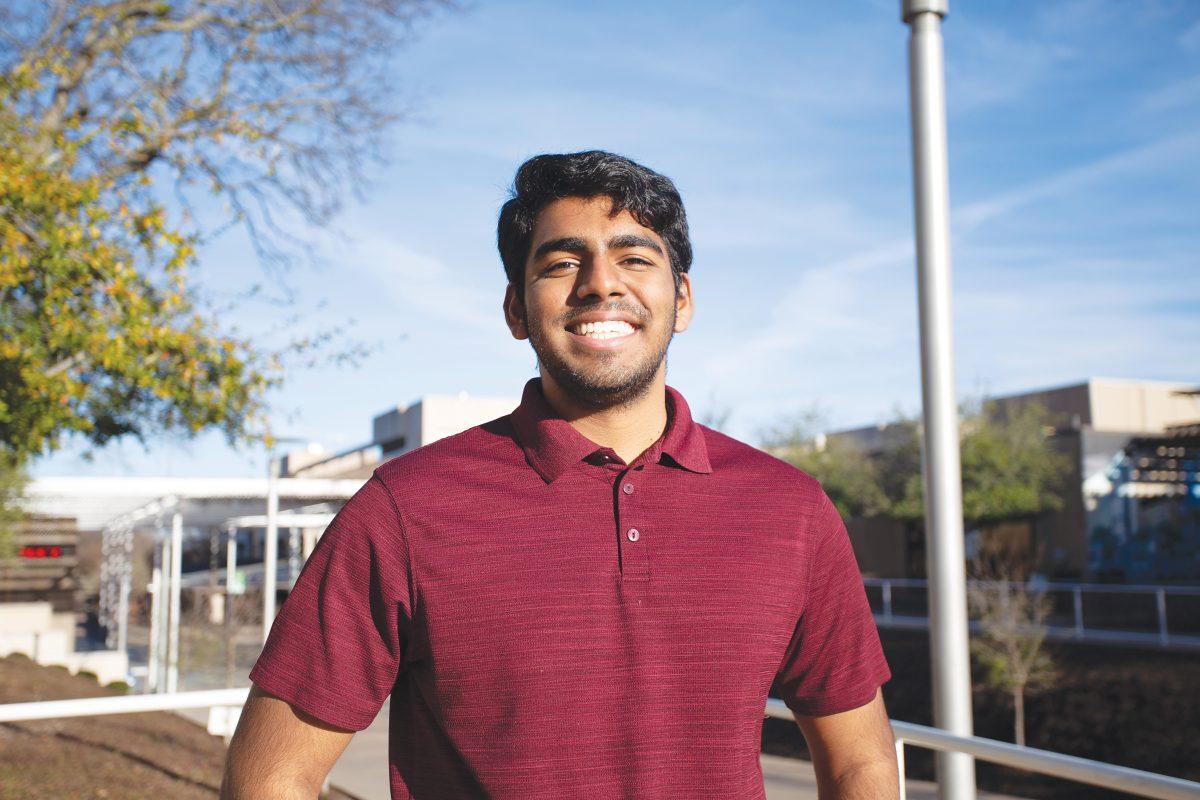
Biology alum Lokesh Nagineni will pursue a medical degree at Texas Tech University’s Health Sciences Center in El Paso. Photo by Medha Somisetty | Mercury Staff.
Nearly
2,800 UTD students made up the cohort of fall 2018 graduates. One of the
students was biology major Lokesh Nagineni, who, at age 18, successfully
finished his undergraduate education to enter the next chapter of his life —
medical school.
Born and
raised in Flower Mound, Nagineni said he’s much like his peers in that his
hobbies include sports and videogames. But the reason that he was able to
graduate from college at 18 years old, unlike his peers, was his early
admission to the Texas Academy of Mathematics and Science, a program that
allows high school students to earn college credit at the University of North
Texas, at age 14.
“I
asked an admissions officer early on about how I could show my interest in
TAMS,” Nagineni said. “Because as a middle schooler, you can’t really do much.”
Over 350
students enrolled in the two-year program at the University of North Texas
receive their education in a residential, university setting, each year.
“I was told that I could
apply to show interest and that I might even get accepted if my application was
good enough,” Nagineni said. “I didn’t really take them seriously on that
second part because how competitive would you have to be show that you would be
able to succeed in a college environment out of middle school?”
Nagineni
said his experience at TAMS was not much different from one he would have had
as a traditional high school student.
“There is a college aspect
to it, but it is a very good mix of college and high school. And everybody is
of (a) pretty similar level of maturity,” Nagineni said. “I don’t think there
was anything that I felt like I was being excluded from.”
Nagineni said it was a big
leap to go from eighth-grade science courses to college-level courses all at
once.
“I had to study really,
really hard the first semester. I feel like a lot of people noticed that
because I was very holed up in my room the entire first semester of TAMS, just
to catch up on everything,” Nagineni said. “But after that, it was kind of an
even playing field.”
With
several college-level courses completed through TAMS, Nagineni entered UTD in
the fall of 2016, at the age of 16. Two years later, he walked the stage as the
youngest student in his graduating class.
“I feel
like even though I had a shorter time here, I bonded a lot with a lot of
people,” Nagineni said. “College is a very good equalizer. Everybody struggles
through classes together, and you kind of bond over that.”
During his time at UTD,
Nagineni served as a teaching assistant for clinical pathophysiology,
biochemistry and molecular and cellular biology courses.
“I’ve had some really good
professors here, and I TAed for them a couple of semesters,” Nagineni said.
“That was really helpful because when you’re a TA, your background and age
don’t really matter. It’s more a matter of competency.”
Nagineni
will be attending Texas Tech University Health Sciences Center El Paso to
pursue a medical degree. He said one of the things he is excited about is that
the average age of students in medical school is higher than that of college.
“I feel
like that’s a very interesting
opportunity because you have all these different people with completely
different experiences,” Nagineni said. “It’s a bit like undergrad, except more
so where you have people who have really fleshed out their life experiences and
been through a lot of different events so they offer a lot of different
perspectives. So I’m looking forward to that part.”
Nagineni said many of his friends and acquaintances from
UTD do not know that he is younger than others in his class.
“The thing is, if I tell people I’m younger, they
automatically assume that I’m like a prodigy or a genius of some sort, which is
really not the case,” Nagineni said. “Age, I feel like, is a matter of
experiences — not really how long you’ve lived but what you’ve been through.
When it comes to that, I feel like there aren’t that many differences between
me and my peers.”